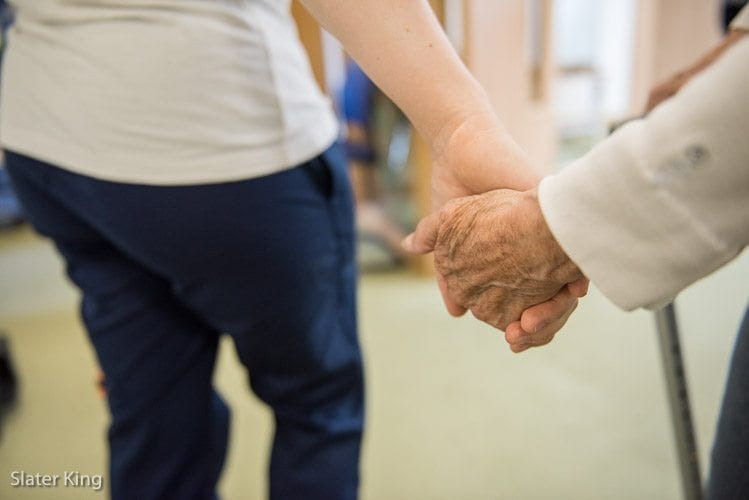At Stanfield Nursing Home, we embrace person centred care as the foundation of our approach to supporting the people we care for. This care method ensures that every individual’s unique needs and preferences guide how we deliver our services.
The Origins of Person Centred Care
The concept of person centred care originated from the work of psychologist Dr. Carl Rogers in the 1940s. Rogers’ approach was initially developed for psychotherapy and counselling but has since been adopted in various fields, including healthcare. His approach emphasised that the therapist is not the expert; instead, the individual receiving care is an equal partner in the decision-making process.
In healthcare, this means treating the people we care for as active participants in their care. They work with us to plan and monitor their health needs, ensuring we meet their physical, psychological, and emotional well-being.
Why Person Centred Care Matters in Nursing Homes
Person centred care benefits everyone involved, especially those receiving care. Studies in 2024 show that nursing homes that implement this practice see significant improvements in quality of life. According to a report by the Health Foundation, care homes that practise this care experience higher satisfaction rates, better physical health outcomes, and improved emotional well-being among people in care.
Research shows that people receiving person centred care are more likely to feel empowered, respected, and valued. They also experience reduced hospital admissions and improved health outcomes, as care plans are tailored to their specific needs.
How We Implement Person Centred Care at Stanfield Nursing Home
At Stanfield, we engage each person and their family in planning, developing, and monitoring their care. This approach ensures that every aspect of care meets the individual’s needs and preferences. For example, we work with loved ones to create personalised care plans that consider their wishes and priorities.
Richard White, our Director, emphasises, “Being person centred means that when we plan care with the person, we think about the effect of what we’re doing on the person as a whole.” This philosophy ensures that safety, comfort, and well-being are at the forefront of every decision we make.
The Success of Person Centred Care in 2024
In 2024, 85% of UK care homes have adopted person centred care practices, making it one of the most widely recognised methods for improving care quality . Studies have shown that centred care leads to a 25% reduction in hospital admissions, and individuals receiving such care experience higher satisfaction with their overall quality of life.
At Stanfield Nursing Home, we believe in the power of person centred care to transform the lives of the people we care for. Our approach not only improves physical health but also fosters a sense of community, belonging, and emotional well-being.
Person Centred Activities at Stanfield
In addition to medical care, we also provide person centred activities that cater to the interests and abilities of the people we care for. These activities, such as music therapy, arts and crafts, and light exercise, are designed to enhance mental and emotional well-being. By involving individuals in activities they enjoy, we promote engagement and happiness.
Richard White highlights this when he says, “At its core, providing care in this way means we always keep the person’s wishes, safety, comfort, and well-being at the forefront of our minds.” Our person centred approach extends to all aspects of life at Stanfield Nursing Home, ensuring a holistic and fulfilling experience.
The Positive Effects of Person Centred Care
Person centred care has been proven to significantly benefit individuals in nursing homes. It promotes autonomy, reduces stress, and enhances emotional well-being. Research also indicates that individuals who receive centred care experience a 20% improvement in mental health and an increase in overall satisfaction with their care.
At Stanfield Nursing Home, we continually strive to deliver the best care possible by putting the needs of the people we care for first. Our person centred care approach guarantees that every individual feels empowered, valued, and respected.
Learn More About Person Centred Care at Stanfield Nursing Home
If you’d like to know more about person centred care at Stanfield Nursing Home, please contact us at 01905 420 459.
Our team is always ready to answer your questions or arrange a tour of our home and gardens.
Sources:



